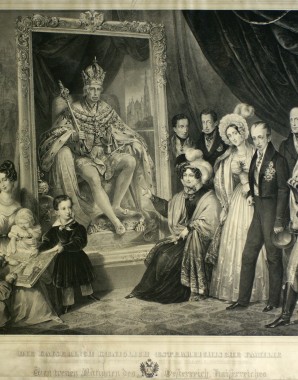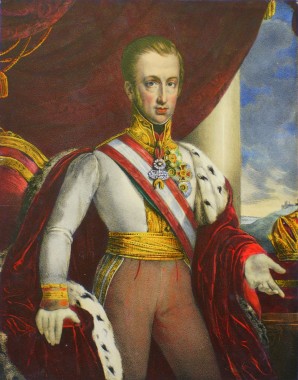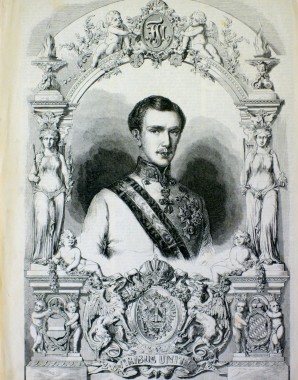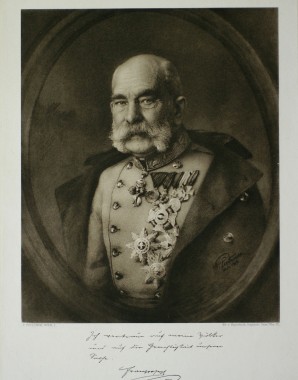Reigns and Rulers VII
The Long Decline of the Nineteenth Century
The conservative states of Europe could breathe again – Napoleon had had his day. The Habsburgs reacquired all the territories they had lost and ruled on absolutist principles. Until the end of the Monarchy they maintained their claim to power under the motto of ‘doing their duty’. But their losses of power and authority could not be ignored.
The dominant political figure of the first half of the nineteenth century was not a Habsburg but Prince Metternich, whose name has become synonymous with a pervasive ‘system’ of hard-line policing involving informers and censorship. The second half of the century belonged to Emperor Franz Joseph, the ‘old gentleman of Schönbrunn’. In the course of his long period of rule, Franz Joseph had to cope with numerous internal and external conflicts. As Emperor – in his own eyes the strong man who ‘did his duty’ – he increasingly became a relic of conventional claims to power that were in contradiction with the social upheavals of his time. The Danube Monarchy finally came to an end under the last Emperor of Austria, Karl, at the close of the First World War.

















